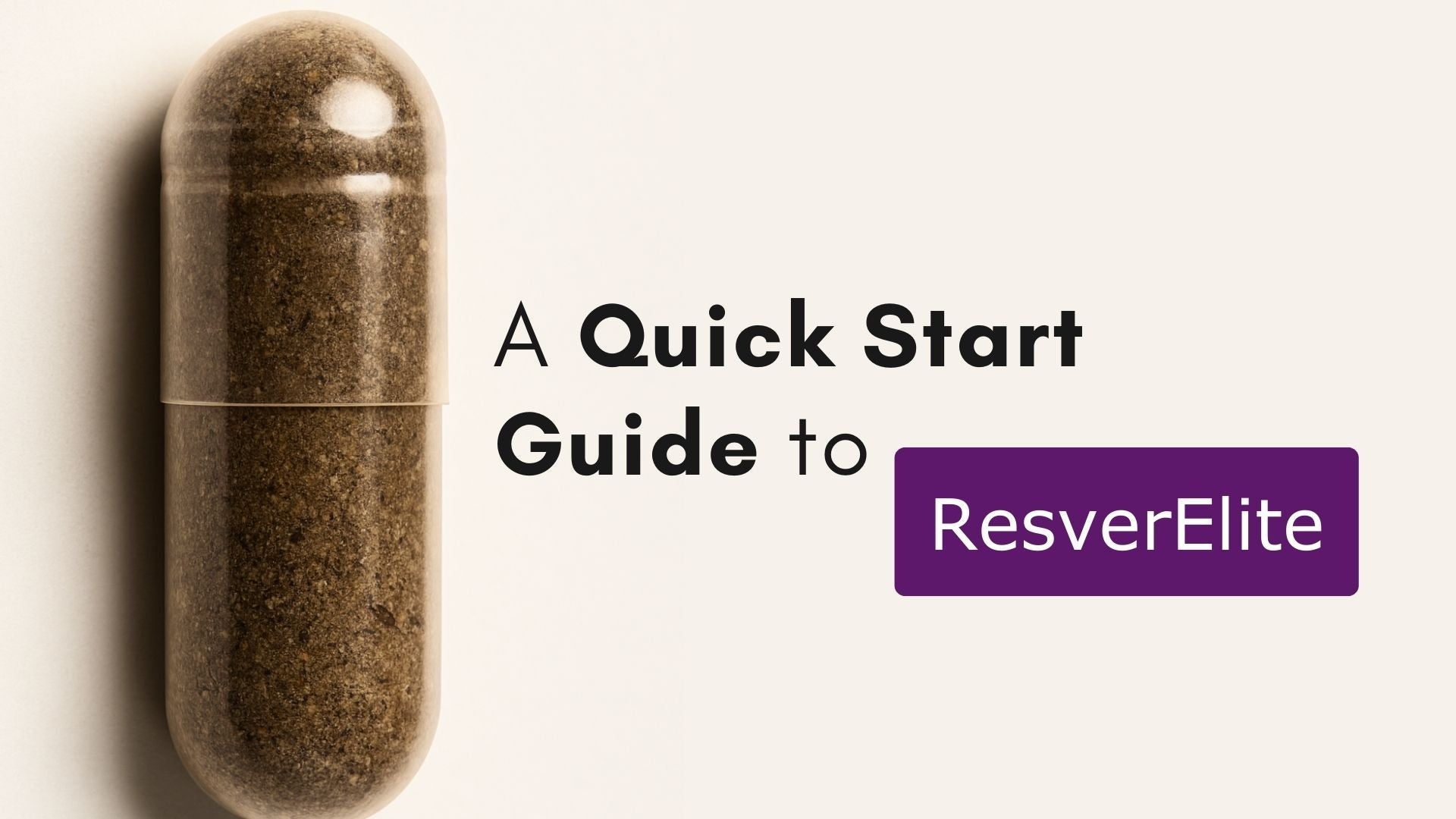Cómo Hackear tu Sueño para un Máximo Rendimiento y Longevidad
Dormir no es solo descansar: es un componente esencial para la salud óptima, la función cognitiva y la longevidad. En Mara Labs, siempre buscamos cómo mejorar la calidad de nuestro sueño. En este artículo, compartimos nuestros hacks favoritos para dormir mejor —y por qué la calidad y la cantidad del sueño son tan importantes.
¿Por qué deberíamos preocuparnos por dormir bien?
🧠 1. Mejora la Memoria y el Enfoque
El sueño cumple un rol vital en el rendimiento cognitivo, incluyendo la concentración y la consolidación de la memoria a largo plazo. Durante el sueño profundo, los sistemas corticales y subcorticales del cerebro estabilizan las vías neuronales necesarias para aprender, retener y recordar información. Perder solo una noche de sueño puede reducir drásticamente la atención y la concentración.
Un estudio de 2013 demostró que el sueño es esencial para la formación de la memoria a largo plazo, y otro estudio de 2018 vinculó directamente la calidad del sueño con el rendimiento atencional.
⏳ 2. Favorece la Longevidad
Dormir bien no solo te hace sentir mejor: también puede ayudarte a vivir más. Durante el sueño, el cuerpo realiza reparaciones celulares, balancea las hormonas y regula el sistema inmunológico. Un estudio de 2017 sobre centenarios encontró que estos consistentemente dormían más de 8 horas y solían tomar siestas.
Sin embargo, un estudio de gemelos de 2007 mostró que dormir demasiado o muy poco (fuera del rango de 7–8 horas) aumenta el riesgo de mortalidad hasta en un 24%. ¿La clave? Dormir una cantidad moderada y de forma constante.
⚖️ 3. Mantiene un Peso Saludable
Dormir mal está fuertemente asociado con el aumento de peso y el desequilibrio metabólico. ¿Por qué? La privación de sueño altera las hormonas del hambre (grelina y leptina), aumenta los antojos de azúcares y reduce la capacidad del cuerpo para regular la insulina.
Comer tarde en la noche es especialmente dañino. Con la melatonina elevada, la producción de insulina disminuye, dejando la glucosa en sangre alta durante la noche, lo cual favorece el aumento de grasa e inflamación. Hacer un ayuno nocturno (de 12 horas o más) y evitar comidas nocturnas ayuda tanto al control de peso como a mejorar el sueño.
🌧️ 4. Protegerte Contra la Depresión
La conexión entre el sueño y la depresión está ampliamente documentada. Un estudio de 2012 mostró que el insomnio aumenta el riesgo de depresión por diez veces. Además, cerca del 75% de las personas con depresión sufren trastornos del sueño, lo que perpetúa un círculo vicioso.
La apnea obstructiva del sueño (AOS) también es una causa oculta de depresión, debido a la fragmentación crónica del sueño. Tratar el insomnio y corregir problemas respiratorios puede mejorar drásticamente el estado de ánimo y la claridad mental.
🕒 5. Sincronizarte con tu Ritmo Circadiano
Tu cuerpo funciona en un ciclo interno de 24 horas conocido como ritmo circadiano, que regula desde la liberación hormonal hasta el metabolismo. Comer y dormir en sintonía con este ritmo puede mejorar enormemente la calidad de tu sueño y tus niveles de energía.
Ahora que entendemos que el sueño es vital para casi todos los aspectos de la salud, veamos tips prácticos para mejorar.
💡 Consejo pro: comienza aplicando solo 1–2 cambios y añade uno nuevo cada semana. Comprométete por al menos 6 meses... ¡y verás resultados!
Hacks para Mejorar el Sueño
Tip #1: Trabaja con el Sol
-
Despierta y acuéstate a la misma hora cada día (incluidos fines de semana).
-
Come tu última comida al menos 3 horas antes de dormir.
-
Evita pantallas después del atardecer (usa bloqueadores de luz azul si es necesario).
-
Exponte a la luz del sol en la mañana para resetear tu reloj biológico.
-
Limita la alimentación a 10–12 horas de luz solar (ej. de 8 am a 6 pm).
Tip #2: Estimula el Nervio Vago
Uno de los hacks más innovadores proviene del Dr. John Gildea de Mara Labs: usar un dispositivo TENS para estimular la rama auricular del nervio vago en la oreja izquierda. Esta técnica ayuda a cambiar el estado del sistema nervioso del modo simpático (“lucha o huida”) al modo parasimpático (“relajación y regeneración”), lo cual es fundamental para lograr un sueño profundo.no de los hacks más innovadores viene de Dr. John Gildea de Mara Labs: usar un dispositivo TENS para estimular la rama auricular del nervio vago en la oreja izquierda, ayudando a cambiar el sistema nervioso del modo simpático, “pelear o correr” al modo para simpático “relajación y regeneración”, un estado crítico para un sueño profundo.
🎧 Escucha nuestro podcast sobre esto aquí.
-
¿Una opción más práctica? Aunque la unidad TENS es una forma económica de aplicar este hack, requiere tiempo y esfuerzo mental. Nuestra opción favorita y más sencilla para lograrlo es el TruVaga. Este dispositivo es barato, pero vale cada centavo. Lo he usado en ~500 sesiones, incluso en amigos, quienes al probarlo ¡quedan maravillados y compran el suyo inmediatamente!
¿Por qué funciona la Estimulación del Nervio Vago?
-
Promueve relajación, digestión y sueño.
-
Reduce inflamación, baja el ritmo cardíaco y mejora la variabilidad de la frecuencia cardíaca (HRV).
-
La taVNS (estimulación transauricular) ha mostrado aumentar el sueño profundo y mejorar la recuperación post COVID prolongado.
Resultados del Dr. Gildea:
-
Mejoría en HRV.
-
Descenso de 8–10 latidos por minuto en la frecuencia cardíaca en reposo.
-
Aumento del sueño profundo hasta un óptimo 18–20%.
-
Menos dolor crónico y mejor digestión.
¿Cómo hacerlo con un TENS?
-
Coloca un clip auricular en la oreja izquierda (centro de la concha).
-
Parámetros:
-
Duración del pulso: 150–200 microsegundos
-
Frecuencia: 15–30 Hz
-
Intensidad: baja, apenas perceptible
-
-
Tiempo:
-
15–20 minutos por sesión
-
Hasta 3 veces al día
-
Haz una sesión antes de dormir para mejorar el sueño
-
También puedes probar una sesión cerca de las comidas para apoyar la digestión.
“Es como ponerle rueditas de entrenamiento a tu sistema nervioso,” dice el Dr. Gildea.
“Al tonificar el nervio vago, puedes salir del estado de sobrecarga simpática y permitir que el cuerpo descanse, se repare y duerma.”
-
Nota: Con TruVaga solo necesitas 2–3 sesiones diarias de 2 minutos.
Tip #3: Bloquea la Luz Azul de Noche
La luz azul interfiere con la melatonina (la hormona natural del sueño) y eleva el azúcar en sangre.
Protege tu sueño:
-
Cambia la pantalla a tonos cálidos ("Night Shift" en iPhone o apps como f.lux).
-
Usa lentes que bloqueen 100% de la luz azul y verde (<530 nm).
-
Usa bombillas rojas por la noche.
-
Instala cortinas blackout.
-
Atenúa las luces después del atardecer.
📚 Un estudio de 2011 encontró que la luz azul suprime la melatonina en más del 80% y retrasa su producción 90 minutos.
Tip #4: No Comas Antes de Dormir
Comer cerca de la hora de dormir eleva el azúcar e insulina, suprime la melatonina y genera más estrés oxidativo.
Qué hacer:
-
Cena al menos 3 horas antes de dormir.
-
Evita snacks azucarados o muy altos en carbohidratos.
-
Suplementa con BerbElite (berberina biodisponible) y SleepElite (L-triptófano, ashwagandha, 5-HTP) para controlar glucosa y favorecer la relajación.
🔬 Incluso pequeñas elevaciones de glucosa nocturna pueden alterar los ciclos de sueño REM y profundo.
Tip #5: Exponte al Sol de la Mañana
La luz matutina es el ancla más poderosa del ritmo circadiano.
Rutina matutina simple:
-
Sal afuera en los primeros 30–60 minutos tras despertar.
-
Pasa 10–20 minutos en luz natural, sin gafas de sol.
-
🎁 Bonus: combina con una caminata para mejorar metabolismo y azúcar en sangre.
☀️ Un estudio de 2008 mostró que exponerse a luz matinal adelanta la producción de melatonina y mejora la calidad del sueño.
Tip #6: Duerme en una Habitación Fresca
Para dormir, la temperatura corporal debe descender.
Cómo optimizarlo:
-
Ajusta la habitación entre 15–21°C (60–70°F).
-
Mantén los pies calientes (usa calcetas).
-
Deja tu cabeza fresca (sin gorros ni cobijas pesadas).
💤 Estudios muestran que ambientes más frescos mejoran el sueño REM y reducen el tiempo que tardas en dormir.
Tip #7: Toma Magnesio (Transdérmico u Oral)
El magnesio calma el sistema nervioso, reduce el cortisol y relaja los músculos.
Formas ideales:
-
Baño de sales de Epsom antes de dormir.
-
Magnesio glicinato o treonato (mejor tolerados).
-
Spray de aceite de magnesio.
🧪 La suplementación con magnesio mejora la calidad e inicio del sueño, especialmente en adultos mayores.
Tip #8: Estimula los Sistemas GABA, Glicina y Serotonina
Los neurotransmisores importan.
-
El GABA calma la actividad cerebral.
-
La glicina reduce la temperatura corporal.
-
La serotonina es precursora de la melatonina.
Puedes probar:
-
Suplementos de GABA o hierbas como valeriana.
-
3 g de glicina antes de dormir.
-
SleepElite para apoyar la serotonina y la melatonina de manera natural.
🧠 Estudios demuestran que la glicina antes de dormir reduce el tiempo para conciliar el sueño y mejora la satisfacción del descanso.
Reflexión Final
Optimizar el sueño no solo es descansar: es actualizar todo tu sistema.
Desde la memoria, el enfoque, el peso, el ánimo y la recuperación, el sueño es la base para el alto rendimiento y el envejecimiento saludable.
Aplica estos hacks basados en ciencia para comenzar a dormir mejor desde esta noche:
-
Prioriza la memoria y el aprendizaje con sueño profundo.
-
Apunta a 7–9 horas de descanso de calidad.
-
Usa un monitor confiable para ajustar tus necesidades.
-
Estabiliza tu metabolismo con hábitos de sueño y alimentación circadiana.
-
Sincroniza tu día con la biología circadiana.
-
Estimula el nervio vago para promover la recuperación parasimpática.
Referencias
Luz azul y supresión de la melatonina
Cajochen, C., Frey, S., Anders, D., Späti, J., Bues, M., Pross, A., ... & Stefani, O. (2011).
Evening exposure to a light-emitting diodes (LED)-backlit computer screen affects circadian physiology and cognitive performance.
Journal of Applied Physiology, 110(5), 1432–1438.
https://pubmed.ncbi.nlm.nih.gov/20876473/
Glucosa en sangre y calidad del sueño
Broussard, J. L., & Van Cauter, E. (2016).
Disturbances of sleep and circadian rhythms: novel risk factors for obesity.
Current Opinion in Endocrinology, Diabetes, and Obesity, 23(5), 353–359.
https://pubmed.ncbi.nlm.nih.gov/27433903/
Nuyujukian, D. S., Kipnes, M., Ludwig, D. S., et al. (2019).
Associations of glycemic variability and fasting glucose with poor sleep quality and fatigue.
Diabetes, Obesity and Metabolism, 21(12), 2764–2771.
https://pubmed.ncbi.nlm.nih.gov/31297970/
Luz solar matutina y regulación de la melatonina
Lewy, A. J., Emens, J. S., Jackman, A. R., & Yuhas, K. (2006).
Circadian uses of melatonin in humans.
Chronobiology International, 23(1-2), 403–412.
https://pubmed.ncbi.nlm.nih.gov/16687319/
Revell, V. L., & Eastman, C. I. (2005).
How to trick Mother Nature into letting you fly around or stay up all night.
Journal of Biological Rhythms, 20(4), 353–365.
https://pubmed.ncbi.nlm.nih.gov/16077152/
Wright, K. P., Jr., et al. (2008).
Morning light exposure improves sleep and alertness in older adults.
Sleep, 31(5), 593–598.
https://pubmed.ncbi.nlm.nih.gov/18596355/
Temperatura ambiental y sueño
Van Someren, E. J. (2006).
Mechanisms and functions of coupling between sleep and temperature rhythms.
Progress in Brain Research, 153, 309–324.
https://pubmed.ncbi.nlm.nih.gov/16876577/
Okamoto-Mizuno, K., & Mizuno, K. (2012).
Effects of thermal environment on sleep and circadian rhythm.
Journal of Physiological Anthropology, 31(1), 14.
https://pubmed.ncbi.nlm.nih.gov/22877660/
Magnesio para dormir
Abbasi, B., Kimiagar, M., Sadeghniiat, K., Shirazi, M. M., Hedayati, M., & Rashidkhani, B. (2012).
The effect of magnesium supplementation on primary insomnia in elderly: A double-blind placebo-controlled clinical trial.
Journal of Research in Medical Sciences, 17(12), 1161–1169.
https://pubmed.ncbi.nlm.nih.gov/23853635/
Glicina y GABA para el sueño
Bannai, M., & Kawai, N. (2012).
New therapeutic strategy for amino acid medicine: glycine improves the quality of sleep.
Journal of Pharmacological Sciences, 118(2), 145–148.
https://pubmed.ncbi.nlm.nih.gov/19537971/
Inagawa, K., Hiraoka, T., Kohda, T., Yamadera, W., & Takahashi, M. (2006).
Subjective effects of glycine ingestion before bedtime on sleep quality.
Sleep and Biological Rhythms, 4(1), 75–77.
https://link.springer.com/article/10.1111/j.1479-8425.2006.00208.x







0 Comment